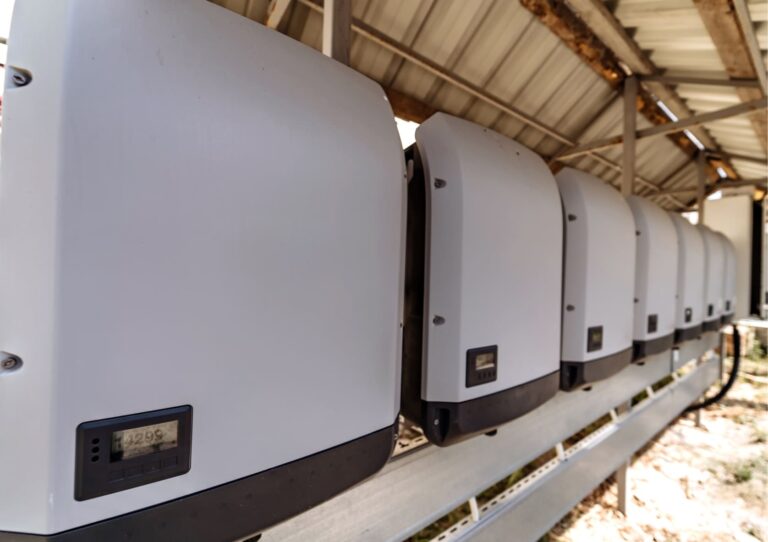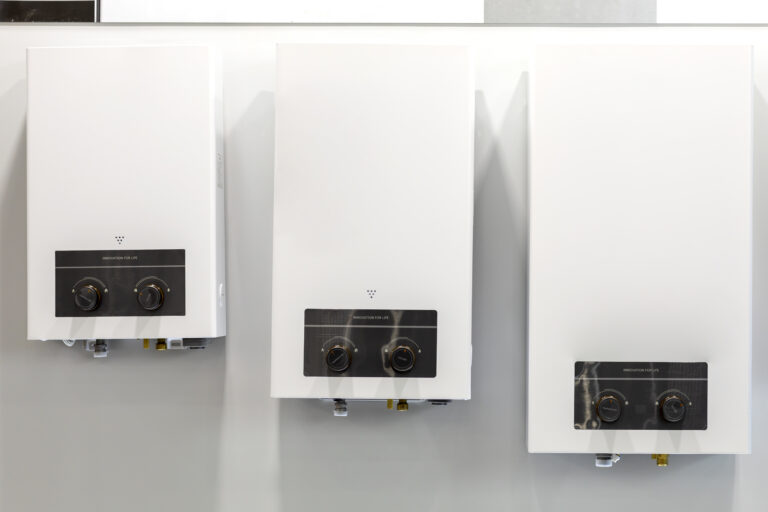Inverters
Nowadays, solar energy is becoming an increasingly common source of sustainable energy, and photovoltaic systems are gaining in popularity. However, the effectiveness of these systems depends largely on a key element – the photovoltaic inverter.
A photovoltaic inverter is an electrical device that converts direct current (DC), generated by photovoltaic cells, into alternating current (AC), suitable for powering homes, companies and other buildings. It is an essential element of the PV (photovoltaic) system, which enables the effective use of energy from the sun.

Features of photovoltaic inverters:
- DC to AC conversion: Photovoltaic inverters play a key role in converting direct current generated by solar cells into alternating current, which is used to power electrical devices.
- Monitoring and Optimization: Modern inverters are equipped with advanced monitoring systems that allow you to track the performance of your PV system in real time. Additionally, optimization functions allow you to maximize energy production in changing weather conditions.
- Security and Performance: The inverters are designed with safety and efficiency in mind. They protect the system from surges, short circuits and other problems that may affect its operation.
- Network Integration: Some inverters have integration functions with power grids, which allows for the supply of excess energy to the grid, as well as the use of energy from the grid in the event of a shortage of solar energy.
Are you looking for inverters ?
Check current promotions and stocks
Key issues related to photovoltaic inverters:
- Selecting the right inverter: Selecting the right inverter is crucial for optimal PV system performance. The power of the system, the type and number of solar panels and the weather conditions in a given region should be taken into account.
- Regular maintenance: To maintain the long life and high performance of the inverter, regular maintenance is necessary. Checking the technical condition, cleaning and possible repairs are necessary to ensure stable operation of the system.
- Modern technologies: Inverter innovations such as maximum power tracking technologies (MPPT) and intelligent control functions can significantly increase the efficiency of a photovoltaic system.
- Compliance with standards and certificates: It is important to choose inverters that meet appropriate safety standards and have certificates confirming their quality.
Installing a high-quality photovoltaic inverter is a key step in building an effective photovoltaic system. Thanks to modern technologies and appropriate practices, we can maximize the use of solar energy while contributing to environmental protection.

Privacy Policy Proforma Regulations All rights reserved 2026 ecoABM
agencja digital - hauerpower.com